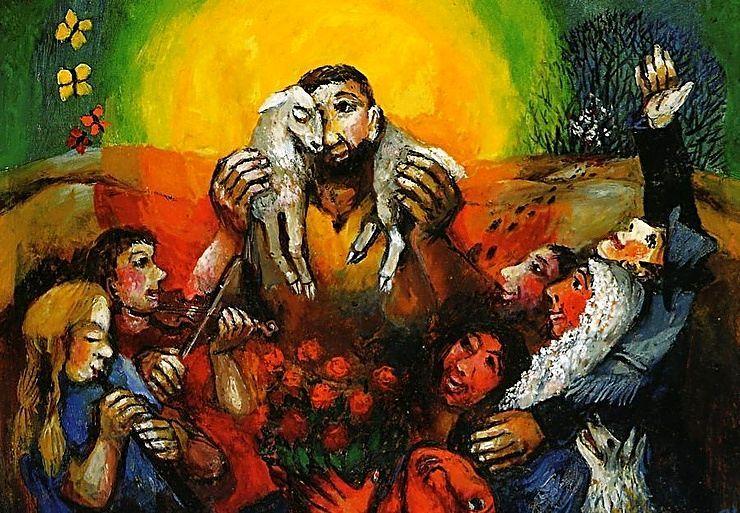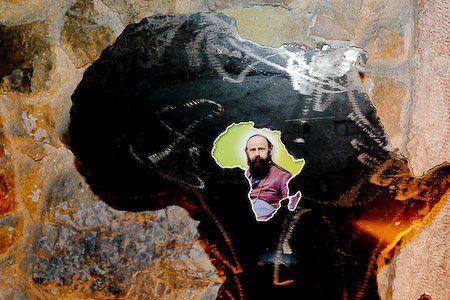Daniel Comboni
Comboni Missionaries
Institutional area
Other links
Newsletter
After two intense months of Consulta to get a global picture of the Institute, we have felt tiny and feeble, like David in front of Goliath. At the same time we did not lose hope and optimism thinking of the strength and talents, virtues and witness, the Comboni-like stance of confreres and the collaboration shown by provincial and delegation councils.
We asked ourselves: What should we be aiming at during this six-year period? In particular, where should we begin from?
We do not begin, we carry on! We carry on treading in our Founder’s footsteps by:
1. A Comboni optimism
Our optimism is the one Comboni has taught us. An optimism founded on hope, brotherly charity and the passion for mission. Comboni could foresee difficulties and limits. He weighed up the forces at his disposal and kept “daring.” Comboni could also see the faults and weaknesses of his missionaries; nevertheless he trusted in them and spoke well of them all. He not only spoke well of his missionaries, but even upheld them as examples to be imitated.
It is with this same optimism that we are called to go on with our journey. With this optimism we are called to study and appraise the Chapter Acts.
We have heard contradictory comments about the General Chapter, that is it has been “a good, irrelevant, interesting, a step forward, a step backward, a disappointing, a time of grace…” Chapter. Everyone is naturally free to say what he feels in his heart or mirrors his own life-experience. I believe, though, that each Chapter reflects our life and our history: a history of grace and of sin, of weakness and of virtue, but a sacred history, since God has walked along with our Institute.
I invite you to reflect on the Chapter Acts, plucking the graces and the paths the Spirit has shown us through the voice of the provincials and the other delegates to the Chapter.
2. The strength of our spirituality
I mean, of course, the Comboni spirituality! Certainly we have to begin from here, or to continue our journey from here: namely, keeping our eyes fixed on the Christ!
An inadequate spirituality is dangerous to our personal, community and missionary life. The Chapter recalls more than once the wise words of the Rule of Life, which teaches us that mission is linked to prayer life; that the quality of mission depends on the spiritual quality of the missionary; that the missionary who has nothing to say or to give in the name of Christ cannot do mission.
The missionary Christ has taught us that mission is done especially by climbing early the mountain for prayer; mission is done by getting away, going to a solitary place and remaining with the Father after a day of labour and weariness!
An inadequate lifestyle often makes us believe that all our diary pages have to be filled with appointments and commitments and to feel bad if we see empty spaces in our daily timetable. Everything becomes hectic and prayer is reduced to a minimum, the Eucharist becomes routine, the breviary is dropped and there is no time left to be with the Lord… that same Lord who has called us to do mission with Him.
It is true that the mission of the Shepherd is to give his life, the whole of his life, to the last breath. This is what Comboni has taught us. But we must add that it is important to offer a high-quality life… out of concern for the mission, the Institute and Christ himself. In other words, we need to re-qualify our life and our efforts through a deeper, better lived and shared spirituality.
3. The meaning of belonging
The Chapter Acts present our vocation as God’s intervention in our life so that we may follow Christ with Comboni and like Comboni. To live and to do mission like Comboni means also to be one of those who were in the cenacle of apostles, it means to be part of the number of the 12, avoiding being the number 13, the number of no-grace. The sense of belonging disposes us to strengthen and affectively love the Comboni Family, to see this Family as the only family, without having to dream about other or different families. Our Family is the one where we are missionaries together. It is a sign of a false vocation to remain in the Institute just to do mission. Mission is to be proclaimed and witnessed together.
At this point we bless those confreres who, in honesty and unambiguously, have taken the decision to leave the Institute. At the same time we strongly appeal to those who for some time now have abandoned the Institute and still pretend to be Comboni Missionaries. I am referring to those few confreres, but nevertheless always many, who live in a nest of unjustifiable privileges; who have opted to do their own thing, moving away from the spirit of the Institute and Comboni lifestyle.
4. The new of the charism
The General Chapter speaks of the “new”, of renewal. It is a question of once again making meaningful our Comboni charism, of giving it its rightful place, of reviewing the style of our presence. It is clear that the renewal process does not entail to do more than what the Founder did nor to simply imitate him. Renewal means to do what the Founder would do today, in faithfulness to the Spirit.
Renewal does not mean the wiping out of the past and the exclusively focussing on the present and on the future: “A renewal process - writes Vittorio Liberti, SJ - witnesses the living together of two different souls: that of the continuity in tradition, namely a return to one’s roots, and that of the discontinuity… If we wish to get new buds or fruits from a tree, we must not cut its roots: the tree would die. It is sufficient, instead, to prune it in a special way, to apply new grafting techniques and to fertilise it properly in order to harvest new varieties of flowers and fruits.”
5. Animating one another
One of the meanings of the word authority is the ability to enable growth from within, starting off from the worth, values and strength inherent in each one of us. The service of authority, consequently, is to animate the individual and the community and to point to an interior growth in view of the choices and decisions to be made. The service of authority, therefore, is not to command, but to animate. To animate in order to arrive at a decision.
A basic attitude of one who animates is to provoke and to facilitate the crossing from a structure to inspiration. In the birth of an Institute we have the opposite process: we start off from the Founder’s inspiration and become structured. To renew an Institute we have to favour the time when we are called to return to our origins and to the moment of inspiration. To identify ourselves with only the structure does not allow us to go back to the originality of the charism. Those in the service of authority have to encourage dreams and prophecy, which make any structure malleable and docile to the charism.
The General Chapter invites us to “govern together”, to animate together, motivated by the inspiration of our Founder. Again, to animate together through a global vision of the whole Institute, avoiding the danger of restricting ourselves to the problems of our own area of interest.
On agreement with the Chapter Acts, the General Council and the General Secretariats are planning sectorial meetings at continental and intercontinental level till December 2004, when we will have an assembly of all the provincials and delegates.
All this in the hope of enabling us to read together the situations and the difficulties we are going through, to evaluate our performance in the various sectors, to arrive at the right balance between personnel and commitments and, together, to find the answer to the challenges and problems awaiting us.
1st January 2004
Fr. Teresino Serra
Superior General
Our optimism is the one Comboni has taught us. An optimism founded on hope, brotherly charity and the passion for mission. Comboni could foresee difficulties and limits. He weighed up the forces at his disposal and kept “daring.” Comboni could also see the faults and weaknesses of his missionaries; nevertheless he trusted in them and spoke well of them all. He not only spoke well of his missionaries, but even upheld them as examples to be imitated.
It is with this same optimism that we are called to go on with our journey. With this optimism we are called to study and appraise the Chapter Acts.
We have heard contradictory comments about the General Chapter, that is it has been “a good, irrelevant, interesting, a step forward, a step backward, a disappointing, a time of grace…” Chapter. Everyone is naturally free to say what he feels in his heart or mirrors his own life-experience. I believe, though, that each Chapter reflects our life and our history: a history of grace and of sin, of weakness and of virtue, but a sacred history, since God has walked along with our Institute.
I invite you to reflect on the Chapter Acts, plucking the graces and the paths the Spirit has shown us through the voice of the provincials and the other delegates to the Chapter.
2. The strength of our spirituality
I mean, of course, the Comboni spirituality! Certainly we have to begin from here, or to continue our journey from here: namely, keeping our eyes fixed on the Christ!
An inadequate spirituality is dangerous to our personal, community and missionary life. The Chapter recalls more than once the wise words of the Rule of Life, which teaches us that mission is linked to prayer life; that the quality of mission depends on the spiritual quality of the missionary; that the missionary who has nothing to say or to give in the name of Christ cannot do mission.
The missionary Christ has taught us that mission is done especially by climbing early the mountain for prayer; mission is done by getting away, going to a solitary place and remaining with the Father after a day of labour and weariness!
An inadequate lifestyle often makes us believe that all our diary pages have to be filled with appointments and commitments and to feel bad if we see empty spaces in our daily timetable. Everything becomes hectic and prayer is reduced to a minimum, the Eucharist becomes routine, the breviary is dropped and there is no time left to be with the Lord… that same Lord who has called us to do mission with Him.
It is true that the mission of the Shepherd is to give his life, the whole of his life, to the last breath. This is what Comboni has taught us. But we must add that it is important to offer a high-quality life… out of concern for the mission, the Institute and Christ himself. In other words, we need to re-qualify our life and our efforts through a deeper, better lived and shared spirituality.
3. The meaning of belonging
The Chapter Acts present our vocation as God’s intervention in our life so that we may follow Christ with Comboni and like Comboni. To live and to do mission like Comboni means also to be one of those who were in the cenacle of apostles, it means to be part of the number of the 12, avoiding being the number 13, the number of no-grace. The sense of belonging disposes us to strengthen and affectively love the Comboni Family, to see this Family as the only family, without having to dream about other or different families. Our Family is the one where we are missionaries together. It is a sign of a false vocation to remain in the Institute just to do mission. Mission is to be proclaimed and witnessed together.
At this point we bless those confreres who, in honesty and unambiguously, have taken the decision to leave the Institute. At the same time we strongly appeal to those who for some time now have abandoned the Institute and still pretend to be Comboni Missionaries. I am referring to those few confreres, but nevertheless always many, who live in a nest of unjustifiable privileges; who have opted to do their own thing, moving away from the spirit of the Institute and Comboni lifestyle.
4. The new of the charism
The General Chapter speaks of the “new”, of renewal. It is a question of once again making meaningful our Comboni charism, of giving it its rightful place, of reviewing the style of our presence. It is clear that the renewal process does not entail to do more than what the Founder did nor to simply imitate him. Renewal means to do what the Founder would do today, in faithfulness to the Spirit.
Renewal does not mean the wiping out of the past and the exclusively focussing on the present and on the future: “A renewal process - writes Vittorio Liberti, SJ - witnesses the living together of two different souls: that of the continuity in tradition, namely a return to one’s roots, and that of the discontinuity… If we wish to get new buds or fruits from a tree, we must not cut its roots: the tree would die. It is sufficient, instead, to prune it in a special way, to apply new grafting techniques and to fertilise it properly in order to harvest new varieties of flowers and fruits.”
5. Animating one another
One of the meanings of the word authority is the ability to enable growth from within, starting off from the worth, values and strength inherent in each one of us. The service of authority, consequently, is to animate the individual and the community and to point to an interior growth in view of the choices and decisions to be made. The service of authority, therefore, is not to command, but to animate. To animate in order to arrive at a decision.
A basic attitude of one who animates is to provoke and to facilitate the crossing from a structure to inspiration. In the birth of an Institute we have the opposite process: we start off from the Founder’s inspiration and become structured. To renew an Institute we have to favour the time when we are called to return to our origins and to the moment of inspiration. To identify ourselves with only the structure does not allow us to go back to the originality of the charism. Those in the service of authority have to encourage dreams and prophecy, which make any structure malleable and docile to the charism.
The General Chapter invites us to “govern together”, to animate together, motivated by the inspiration of our Founder. Again, to animate together through a global vision of the whole Institute, avoiding the danger of restricting ourselves to the problems of our own area of interest.
On agreement with the Chapter Acts, the General Council and the General Secretariats are planning sectorial meetings at continental and intercontinental level till December 2004, when we will have an assembly of all the provincials and delegates.
All this in the hope of enabling us to read together the situations and the difficulties we are going through, to evaluate our performance in the various sectors, to arrive at the right balance between personnel and commitments and, together, to find the answer to the challenges and problems awaiting us.
1st January 2004
Fr. Teresino Serra
Superior General




